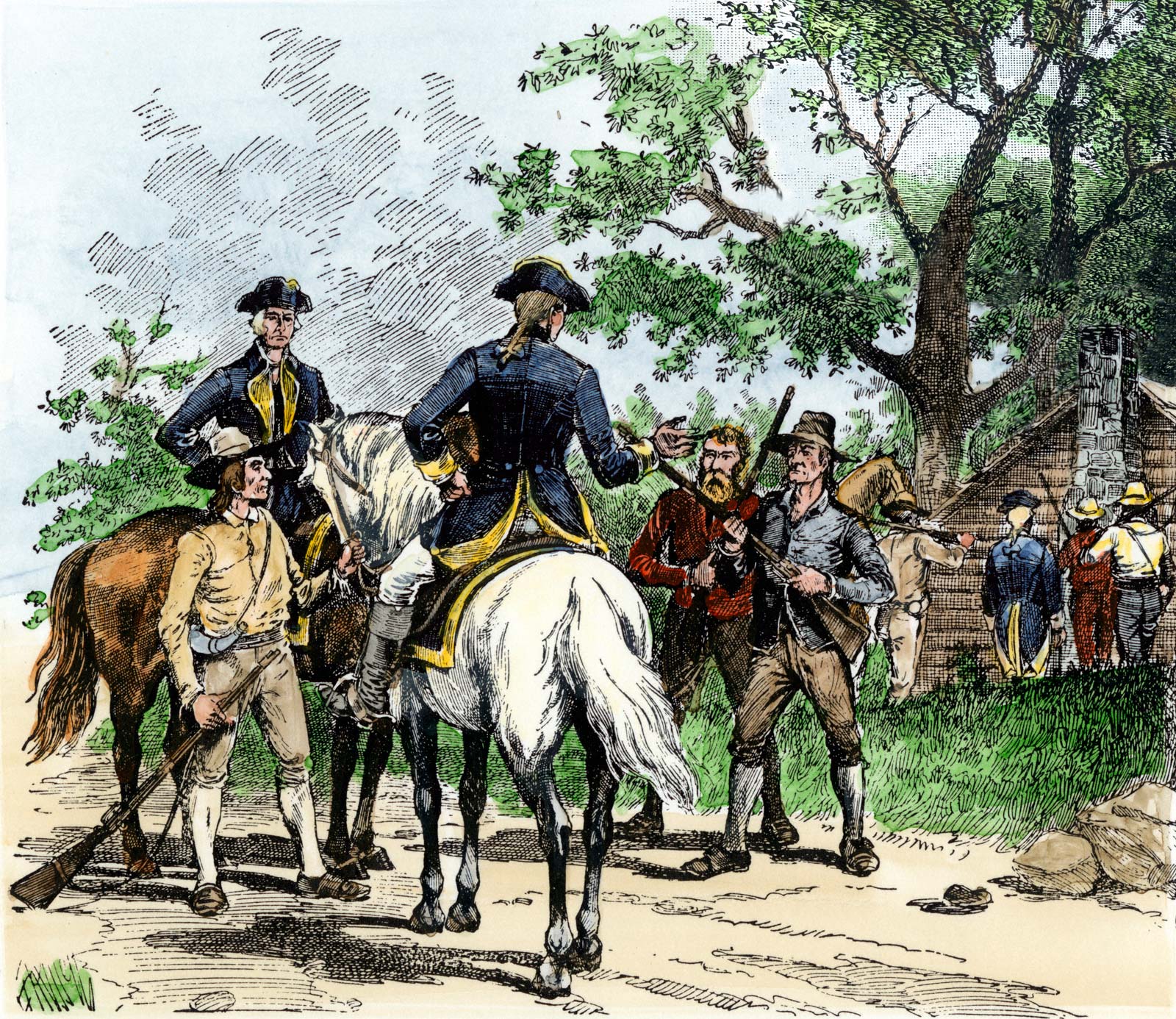The Whisky Rebellion was an uprising of Pennsylvanian farmers and distillers against the federal government during George Washington’s presidency in 1794 for a whiskey tax that they found intolerably burdensome. The federal tax on whiskey hit western farmers hard because it cut into the profitability of turning unsold crops into liquor. Farmers along the frontier began harassing tax collectors. One was tarred and feathered in Pennsylvania. This loose “rebellion” allowed Washington and Hamilton to showcase federal power. Washington personally commanded a volunteer militia and marched towards Pittsburg. When they couldn’t find anyone who took part in the “rebellion,” the militia rounded up twenty men as an example. One of them died in prison, but the others were quickly released or pardoned.
While Federalists claimed victory, this was an embarrassment to the federal government. Western Americans were still unwilling to pay the excise tax, and when threatened, communities hid or sheltered suspected “rebellion” participants and laughed at the show of “force.” It also helped galvanize opposition to the new central authority. Jefferson and others used these western patriots to their advantage and eventually gained control of the federal government.
The Whiskey Rebellion’s Significance
Jefferson’s election in 1801—and Madison’s in 1808 and Monroe’s in1816—signaled that Americans were tired of Hamiltonian economics, particularly its taxes. All federal taxes during Jefferson’s administration were either reduced or eliminated; federal spending was cut and the debt halved; frugality reigned. Before taking office Jefferson declared, “I am for a government rigorously frugal and simple. . . . ” He and the leaders of Congress followed suit.
Jefferson had a history of being sympathetic to tax rebels—indeed he and the Founding generation were tax rebels. After Shay’s Rebellion in 1786, another protest against taxes, Jefferson asked, “What country can preserve its liberties, if its rulers are not warned, from time to time, that the people preserve the spirit of resistance?” Resistance to unjust taxes marked the Founding generation. It is a generation that would disagree with Vice President Joe Biden that it’s a “patriotic duty” to pay taxes. On the contrary, an American’s patriotic duty is to defend liberty, and that means limiting the taxing power of the Federal government to a minimum.
Cite This Article
"The Whiskey Rebellion’s Significance" History on the Net© 2000-2024, Salem Media.
July 27, 2024 <https://www.historyonthenet.com/whiskey-rebellion-significance>
More Citation Information.






